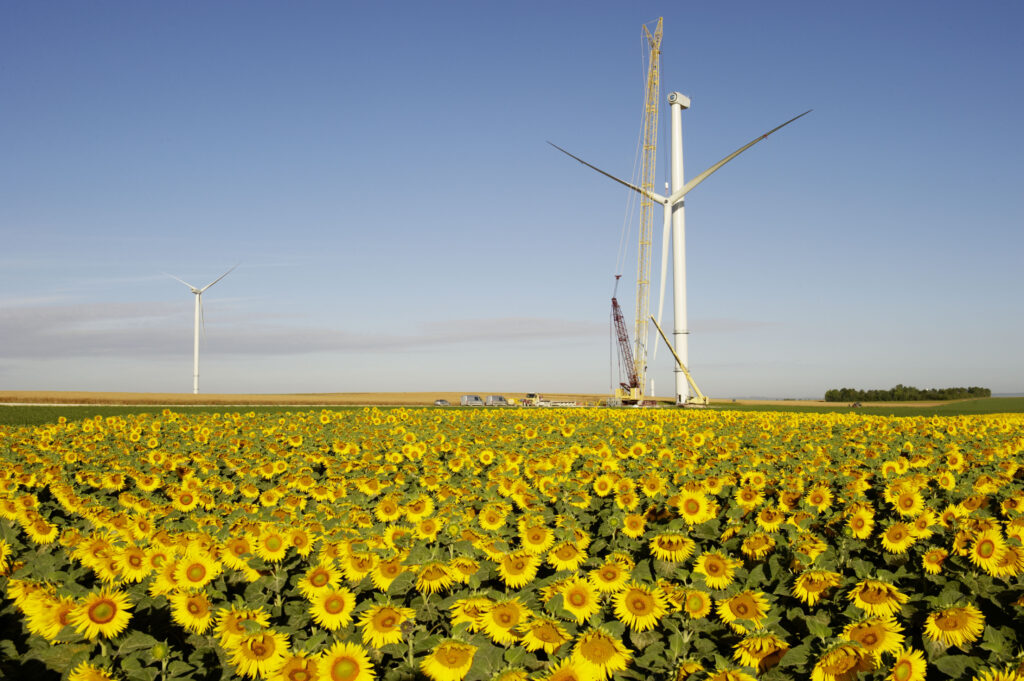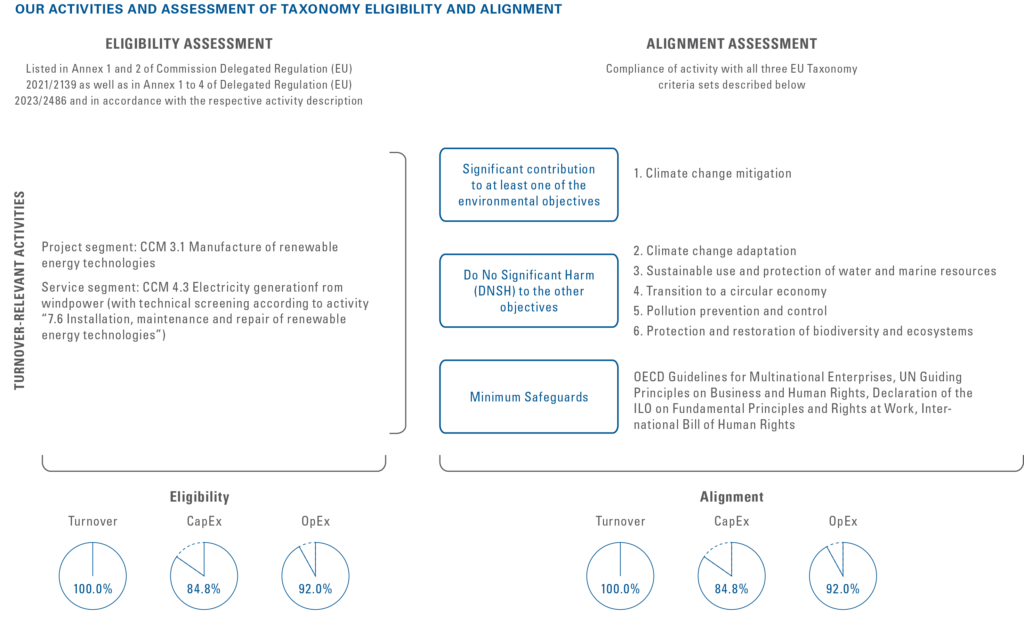EU Taxonomy
EU TAXONOMY REGULATION
EU Taxonomy at a glance

The EU “Green Deal” comprises the ambitious goal of achieving CO2 neutrality in Europe by 2050. To succeed in this, the EU Commission has defined a series of measures within the “Sustainable Finance” action plan to channel capital flows into environmentally sustainable activities. One core component of this is EU Taxonomy Regulation 2020/852 (Taxonomy Regulation), which includes a uniform and legally binding classification system in order to classify economic activities as environmentally sustainable (= Taxonomy-aligned) activities.
First, companies must determine which activities are considered as Taxonomy-eligible, i.e., that are described in the Commission’s delegated acts and thereby potentially contribute to at least one of the environmental objectives, depicted in the following figure. Eligible activities become Taxonomy-aligned and are thus classified as environmentally sustainable if they make a substantial contribution to at least one of the environmental objectives while at the same time not significantly harming any of the other environmental objectives and complying with Minimum Safeguards according to Regulation (EU) 2020/852.

TAXONOMY ELIGIBILITY ASSESSMENT
We have identified our main economic activities as eligible. Our economic activities contribute to the
We have identified our main economic activities as eligible. Our economic activities contribute to the
first environmental objective, “Climate change mitigation (CCM).” Under the second environmental objective “Climate change adaptation (CCA),” we do not disclose any taxonomy-eligible activities as we do not generate turnover from enabling activities and have not identified any separate CapEx (or OpEx) that contribute specifically to climate change adaptation. Thus, all CapEx and OpEx associated with our eligible activities are disclosed as eligible under CCM only. The Nordex Group has no economic activities which fall under the scope of the Environmental Delegated Act covering the further non-climate-related environmental objectives. For our core business, two of the economic activities currently listed in the Taxonomy Regulation (Annex I of Delegated Regulation (EU) 2021/2139) are relevant (Taxonomy-eligible) for the environmental objective “Climate change mitigation”:
- Manufacture of Renewable Energy Technologies (3.1)
- Electricity generation from wind power (4.3)
TAXONOMY ALIGNMENT ASSESSMENT
Having adequate processes and procedures in place to ensure compliance with the requirements of the Minimum Safeguards, we did not identify a violation of them for any of our activities. Furthermore, our turnover-relevant activities “Manufacture of Renewable Energy Technologies (3.1)” and “Electricity generation from wind power” (4.3) both meet the applicable Technical Screening criteria (Substantial Contribution and DNSH criteria) and are hence considered Taxonomy-aligned.
OUR KPIs
In accordance with the Taxonomy Regulation, the Nordex Group discloses three key figures for the economic activities which are considered environmentally sustainable: share of revenues (turnover), operating expenses (OpEx) and capital expenditure (CapEx).

A comprehensive summary on our Taxonomy reporting can be found in our Sustainability Statement in the Annual Integrated Report 2024, p. 164 ff.
